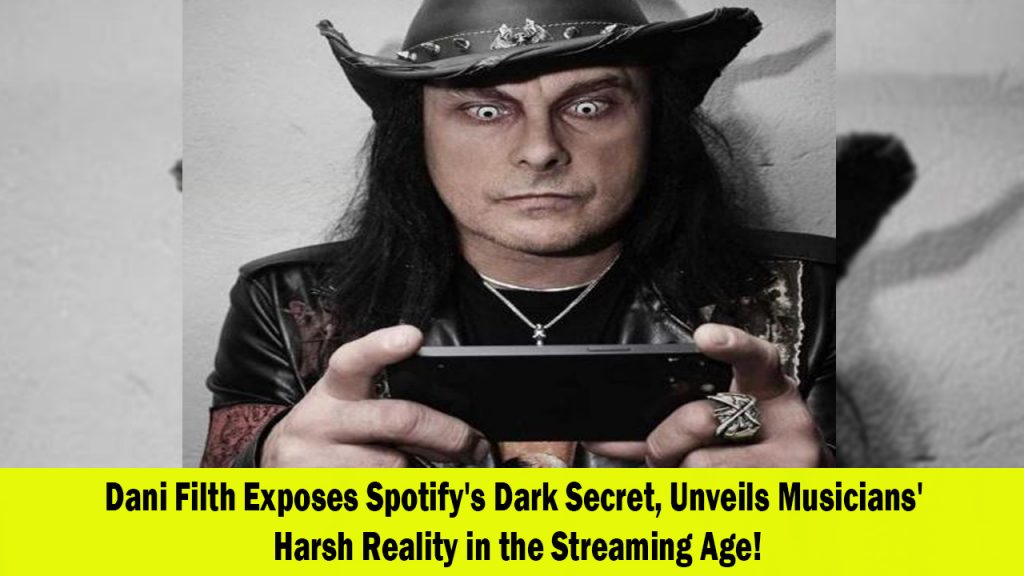Last updated on: June 20, 2023
In a recent interview, Dani Filth, the lead singer of the popular metal band Cradle of Filth, voiced his frustration with Spotify, one of the world’s largest music streaming platforms. Dani Filth expressed his concern about the challenges musicians face in earning a living in today’s streaming-focused music industry. Let’s dive into the story and understand why he called Spotify “the biggest criminals in the world.”
The Rise of Music Streaming
With the rise of technology, people now mostly use music streaming services like Spotify to listen to music. Users can access millions of songs at their fingertips, creating personalized playlists and discovering new artists. This shift from physical music formats, such as CDs or vinyl records, to digital streaming has transformed the music industry.
Dani Filth’s Perspective
Dani Filth, known for his powerful vocals and captivating performances, shared his concerns about Spotify’s impact on musicians’ livelihoods. He expressed disappointment over the amount of money Cradle of Filth received from the platform despite accumulating an impressive 26 million plays in the previous year. According to him, the band earned a mere £20 (about $25.65) from those plays, which he considered significantly less than what they deserved.
The Plight of Musicians
Dani Filth’s comments shed light on the financial struggles faced by many musicians in the streaming age. While streaming services provide exposure and access to a vast audience, the revenue generated from streams is often insufficient to support artists. Musicians rely heavily on live performances and merchandise sales to make ends meet, but with the decline in physical album sales, their income sources have shifted dramatically.
The Debate Over Artist Compensation
Dani Filth’s frustration with Spotify echoes a broader discussion surrounding artist compensation in the streaming era. Critics argue that streaming platforms pay artists too little per stream, making it difficult for them to earn a fair income. On the other hand, supporters argue that streaming has allowed lesser-known artists to gain exposure and connect with fans on a global scale, potentially leading to greater revenue in the long run.
Seeking Solutions
The issues raised by Dani Filth and other musicians have prompted discussions about possible solutions. Some artists advocate for changes in the streaming model, proposing higher royalty rates or alternative payment structures. Others emphasize the importance of supporting artists directly through methods like purchasing physical copies of their albums or attending live concerts.
The Future of Music Consumption
As music streaming continues to dominate the industry, it is crucial to find a balance between accessibility for listeners and fair compensation for artists. The streaming landscape is constantly evolving, and stakeholders, including artists, streaming platforms, and music labels, need to work together to create a sustainable and equitable environment for all parties involved.
Final Thoughts
Dani Filth’s criticism of Spotify highlights the challenges faced by musicians in the streaming age. While streaming platforms offer unprecedented access to music, the compensation received by artists remains a point of contention. As the music industry evolves, finding solutions that support artists financially while providing listeners with convenient and affordable access to music will be key to ensuring a thriving and diverse music culture.
Please comment below what your thoughts about this.


